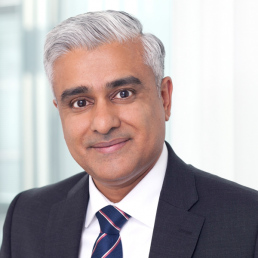Pharmacy Disruption: an interview with Zottii
Taz Sheikh is CEO of medicine delivery start-up Zottii. He talks to Curzon Consulting about pharmacy disruption, the impact of COVID-19 and future of pharmacies.
The gap in medicine delivery models for retail pharmacies has been exacerbated by Coronavirus, increased demand and changing customer expectations.
Interview with Taz Sheikh, CEO of Zottii
We live in a day and age where we can get almost anything delivered on demand and on the same day, whether it be items on Amazon, to your groceries to take-away food or taxis. So you’d think the same will be the case when it comes to prescription medicines, but sadly is not. So in early 2019, I set about looking at ways to change that.
I really thought that there’s got to be a better way a better experience for me as a potential patient, for doctors and for the whole healthcare system as a whole.
And hence I decided to create Zottii.
Challenges in retail pharmacy
-
It’s behind the times. And it’s not really set up for those people who need their medications in a hurry, or who physically cannot get to a pharmacy
-
It’s inconvenient. You know we all live very busy lives today. So find the time to visit a pharmacy, it’s not ideal, you know, particularly if you’re a busy working professional like yourselves, or you’re a single parent or you’re, you have young children
-
The biggest problem right now within retail pharmacies is the out-of-stock situation, it’s common for pharmacies to be out-of-stock of your particular medication 40% of the time. Most do not have the appropriate inventory systems to ensure a continuous supply of the right medications
-
This out-of-stock situation leads to something what we called poor drug compliance. And the inability of people being able to get their medications when they need which often leads them to not actually taking their medications at all. And this potentially causes further problems, not only for the patient, but also for the whole healthcare system as a whole as delayed treatment ultimately does result in worse outcomes.
-
Most pharmacies are just not set up to offer on-demand or same day delivery, and those that do somehow offer that service, quite often it’s complicated as it involves third party couriers, and it can be quite costly. The current suite of online pharmacies use the Royal Mail [UK’s postal service], which often means patients have to wait 2-5 days to receive their medications
-
[Retail pharmacies] are really designed to get people to the door because they’re selling makeup shower gels, toiletries. And most shelves are used up to stock those particular items. And if you actually look at their actual dispensary of prescription medicines, often is a very small space, they don’t always have the space to stock all the inventory
Benefits of online medicine delivery
Opportunity for pharmacy disruption
If new disruptors do not come into this sector and use technology to be able to streamline the whole process it will create more of a burden in the future, not only for patients and for doctors but for the whole healthcare system as a whole.
You’ve had many people look at the front end of healthcare, the likes of these very prominent video consultation platforms. Some of these platforms use AI technology but sometimes people forget about the most crucial element, you still need to get the medicines that are being prescribed into the patient’s hands. It doesn’t matter how many remote consultation platforms you have out there. If people are still not getting their medicines it means nothing.
Evolving customer expectations
We want to bring pharmacy as it is into the current time and we wanted to be a service that’s more aligned with consumer expectations today, as in getting your medications delivered on demand on the same day to a time and place or location that suits you.
The other thing is that we’re trying to make it more convenient.
Ultimately, our service is really designed to help those who need the service get their medications in a timely fashion. Whether you be elderly, single parent, busy working professional, or whether you be someone who’s incredibly tech savvy.
We’re already seeing a younger generation who are basically choosing healthcare on their own terms. They’re using services like video consultations, or chat enabled AI systems. All those systems lend themselves very well to a delivery service such as what we’re offering. It’s completely plausible to expect to have your medications delivered to your home if you’re having a video consultation with your doctor at home.
Predictive software
The reason we are also trying to avoid that no-stock situation is because we’re employing certain types of predictive inventory software and we’re looking at the data around what medications are most consumed. And we also look at the most commonly prescribed drugs of a doctor who uses our service to always ensure that we have an adequate supply.
Faster treatment
By offering free same day delivery, often within one to three hours, we’re quite setup for those people who’ve got time critical care needs. We’re helping people get treated faster, which results in better drug compliance, which results in better medicine adherence.
Continuity of care
Doctors love the service because not only can they send their prescription to us electronically but they also are notified the moment deliveries made so from a continuity of care point of view. And it’s also a value added service for them because as it stands today there’s a detachment from pharmacy and doctor.
Your doctor doesn’t know the challenges that you’re going to face as a patient to try to get your medication. They don’t even know necessarily if you’re going to take your medication because of the fact that you can’t get it, but with a service like AWS they have the comfort knowing that we’ve received their prescription.
Impact of COVID-19
The Coronavirus pandemic has seen the acceleration of digital transformation for many industries, including pharmacy disruption. We discuss the long term impact of the change in behaviour and customer expectations exacerbated by COVID-19.
Increase in demand
The demand for our services absolutely has gone through the roof.
We were originally delivering in (London) zones one to four. We have now stretched out to zones one to six.
Change in operations
What I’ve noticed over the past few weeks with the current COVID-19 lockdown is that a number of the pharmaceutical wholesalers have had to really streamline their delivery services.
Our delivery drivers have obviously had to change the way they operate and work within this current lockdown situation. We’ve had to focus purely on online payments.
Change in mindset
People don’t want to go out and pick up the medicine because they don’t want to risk exposing themselves to other people. And if anything, this whole pandemic really hits home two key things:
- Sick people shouldn’t have to go to the pharmacy. When you’re unwell you can get anything else delivered to your home… Why should you not get your medicines delivered to you?
- Sick people shouldn’t be going out in public: They shouldn’t be going to the pharmacy risking exposure to the pharmacist, they shouldn’t be using public transportation risking exposure to other people. They should stay at home and let services, such as Zotti or similar, come and deliver their medicines to them at home.
Future of Pharmacies
The role of robotics
By the year 2050 the majority of dispensaries will have some form of robotic dispensing capability because:
- they can operate 24/7
- they can be linked to whatever system they need to be. They can be linked directly to a doctor’s prescribing platform
- the use of AI technology can also be in place to minimise any mistakes doctors may make
I think it’s a given pharmacy of the future will be more tech enabled, it will be more integrated and they will be a logistics element attached to the end of it.
The value chain
In terms of the whole ecosystem, I think a more integrated and more thorough pharmacy element is definitely required, certainly in terms of dealing with not only primary care patients but secondary care patients as well. A service such as what we offer does not have to be just focused on prescription medication. We could also be delivering Over the Counter (OTC) products and other products you would typically get in the pharmacy. We already know what the most popular Stock Keeping Units (SKUs) are within the pharmacy. And if you’re delivering medications to a particular individual, why not also deliver the other types of products that they would traditionally get from their pharmacy?
Pharmacists of the future
I think the reality is that there will always be a place for pharmacists… technology will not completely replace the need for a superintendent pharmacist.
But I think the question is who will they work for. There certainly will be in the future options to work for some of these technology disruptors within this space or the ability to embrace technology in their own pharmacy.
I think the industry as a whole needs to give more powers to pharmacists. We’re already seeing more and more pharmacists, with the ability to prescribe. And I think that will start to increase.
Is retail pharmacy ready for disruption?
Curzon Consulting helps organisations with digital strategy and transformation. If you would like to discuss how a multi-channel strategy could be implemented into your current business model, get in touch.
Contact us for more information or submit a request for proposal to our healthcare consulting team
Touchless Travel: automation in airports post COVID-19
Automation in airports may enable touchless travel. The global COVID-19 pandemic has caused widespread disruption around the world and brought with it a lot of uncertainty. The response from many healthcare systems and technology companies highlights the increased adoption of digital tools and innovative solutions.
Curzon Consulting Partner Chetan Trivedi interviews innovators in the UK healthcare sector. In his latest conversation, Chetan explores automation in airports post COVID-19.
Bob Kwik, Director Europe at Elenium Automation, a passenger experience company focused on improving the journey using automation and technology.
The company is also working with hospitals to roll-out self-service triage solutions. Etihad Airways recently announced that it plans to partner with Elenium Automation to trial new technology which allows self-service devices at airports. The technology will be used to help identify travellers with medical conditions, potentially including the early stages of COVID-19. Etihad will initially trial the monitoring technology at its hub airport in Abu Dhabi in May and June 2020.
Get in touch to discuss how digital strategy and transformation can be applied in your organisation.
Contact us for more information or submit a request for proposal to our healthcare consulting team
Remote working during COVID-19 - "Kudos is better than caffeine"
In his first blog post, senior consultant Phil Hanson explores seven lessons he learned in the army that can be applied to remote working during COVID-19.

Image courtesy of Johnny Fenn Photography
People naturally avoid difficult conversations
Ten years in the Army taught me more than I could possibly convey in a single thought leadership piece. However, some of my experience, including front-line combat in Afghanistan, left me some unique insights into team dynamics and leadership in extreme circumstances, many of them pertinent to the COVID-19 pandemic. The seven lessons I learned during my Army career I feel most useful for thriving under difficult conditions are:
Everyone responds differently to stress, and that’s OK
Like infectious diseases, stress responses have a lag time which can vary enormously by individual. This means treating people with patience, followed-up with a bit more patience.
Personality is a poor predictor of stress-response; I have witnessed shy, retiring individuals quietly carrying teams through astonishing adversity. The only consistent truth is that the appropriate response involves patience, compassion and understanding.
Consider the most candid conversation you’ve ever had; someone truly opening up to you about something personal. Now reflect on how it began. It probably meandered through small-talk before finally settling on the real issue once they felt comfortable enough to raise it.
Remote-working makes it too easy to close conversations early. Give people your time, make them feel valued and listened to: Make difficult conversations that bit easier.
Trust is not optional in high-performing teams
It’s often said that what sets the British Army apart is the quality of its Non-Commissioned Officers: Highly-trained, empowered junior mangers who are told what to achieve, not how to achieve it, in a concept known as Mission Command. This reciprocal-trust environment brings out best of the team’s collective strengths.
Virtually everyone responds best to a default position of trust; and will strive to justify this faith placed in them. The rare exceptions to this rule are rapidly exposed, rendering the concept of “respect is earned” redundant in the modern consulting profession.
Professionalism is a mindset
In 2015 my Battalion received new Colours from the Queen: The parade was the culmination of months of painstaking rehearsals and uniform preparation. The result of this was that on the day, leathers polished and medals shining, I felt utterly prepared to perform in front of 20,000 people. Equally, I would never deploy on operations without every bit of my kit being just-so. Both scenarios boil down to one principle: Being every-inch the professional soldier.
Wearing pyjamas whilst WFH every other Friday may be an understandable novelty, but long-term, looking and feeling in work-mode is critical to working in work-mode. It also helps delineate work-life balance.
You have to look after yourself in order to take care of others
Being an infantry officer often involves rapid decision-making whilst exhausted, soaking wet, and freezing cold. Typically, this means making personal sacrifices for the sake of your soldiers, but a good leader knows they need to take sufficient care of themselves to make the right tactical decisions.
It’s too easy to neglect ourselves, convinced we’re doing right by colleagues, friends and family. Granted it’s a tricky balance to strike, but the longer difficult scenarios last, the more important it is to take care of ourselves too. It’s what’s best for the whole team.
Followership is just as important as leadership
Despite all knowing that too many cooks spoil the broth, when we analyse team dynamics, we too often focus exclusively on leadership qualities at the expense of others.
Whether you call it followership, or just being a team player, the art of knowing your role, doing it to the best of your ability and supporting leaders is an often-overlooked critical success factor for high-performing teams.
Kudos is better than caffeine
Whilst it may not exactly be ground-breaking news, it’s nonetheless true that most people could be better at giving credit to others. When the going gets tough, it’s easier than ever to forget to say well-done, despite it being more important than ever.
Coffee may flow through the veins of many consultants, but recognition for job well-done provides a boost that is far more enduring than a caffeine fix.










